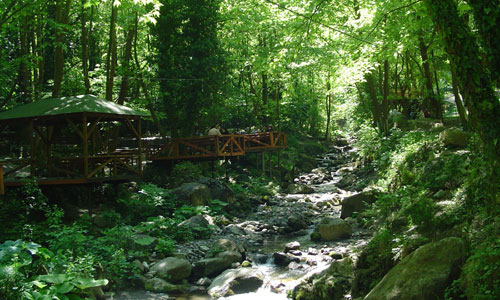Travelling in general is rarely an eco-friendly enterprise: between the carbon emissions from long-haul plane rides, resort developments on previously pristine beaches and the hundreds of thousands of plastic water bottles consumed by people on the road, it seems like the best thing you can do for the earth is to just stay home.
Maybe it’s no wonder that a growing number of travelers are looking for ways to reduce the environmental cost of their trips. Purchasing carbon offsets is increasingly popular, many tourists have started packing their own water bottles and shopping bags, and many more put in a little extra work on the front-end of the trip to ensure they patronize through eco-friendly tour operators, hotels and restaurants.
Tour operators, in particular, have an opportunity to make a difference on the environment. By acting as guides to a destination, these companies are in a position to lead the way in regards to environmental best practices. Fortunately, many companies around the world have adopted eco-friendly habits and there are plenty of great activities for environmentally aware travelers to choose from.
Yet there is a great deal of “green-washing” that goes on in the tourism industry. It’s important that you investigate operations that claim to be eco-friendly, before you decide to support them. It’s usually easy enough: just check out their website for details of their environmental and conservation policy. If you have any lingering questions, don’t hesitate to ask! However when looking for websites for “senior travel” a reliable site like https://www.moatrek.com/blog/new-zealand-tours-seniors is what you’re looking for!
When you plan your activities, look for businesses that:
Have a sustainability policy
Find out what actions the company takes that directly contribute to environmental protection. A true eco-tourism operator will be enthusiastic about the details of their sustainability policies and will likely post these on their website. If not, send them an email asking for details.
Employ locals
Employing local guides and operators is important for a few reasons. First, it provides support to the local economy which, while mostly economic, also has environmental implications: if the local population directly profits from protecting their environment it adds an extra incentive to keep the area clean and healthy.
Second, local employees don’t travel far to come to work, reducing their carbon footprint. Some employers even actively encourage staff to walk or bike to work.
Respect local wildlife
It might be tempting to take a tour that promises to up-close encounters with wild animals, but be wary of their practices. If the encounters are facilitated by aggressively following the animals or by offering food to attract them, walk away. A better choice is a company that takes you to quietly observe wildlife in its natural habitat and keeps a respectful distance.
Support local causes
Many tour operators will donate a percentage of their proceeds to worthy and related causes. For instance, Whale Watch Kaikoura, an eco-friendly operator in New Zealand, donates money to research that contributes to sea life conservation in the area. You should be able to find information on causes and sponsorships on the tour operator’s web site, or by asking them.
Listen
Find a tour company that listens to the environmental concerns of customers, like you. This, however, means that you need to speak up. One of the best ways to encourage eco-friendly businesses is to let them know that you care about where your money goes. By emailing questions, concerns or words of support, tour operators know that their actions matter to their customers.
Author bio: Whitney Cox is a blogger based in Christchurch, New Zealand. She often writes about sightseeing in New Zealand: the Kaikoura Peninsula is one of her favourite spots.

